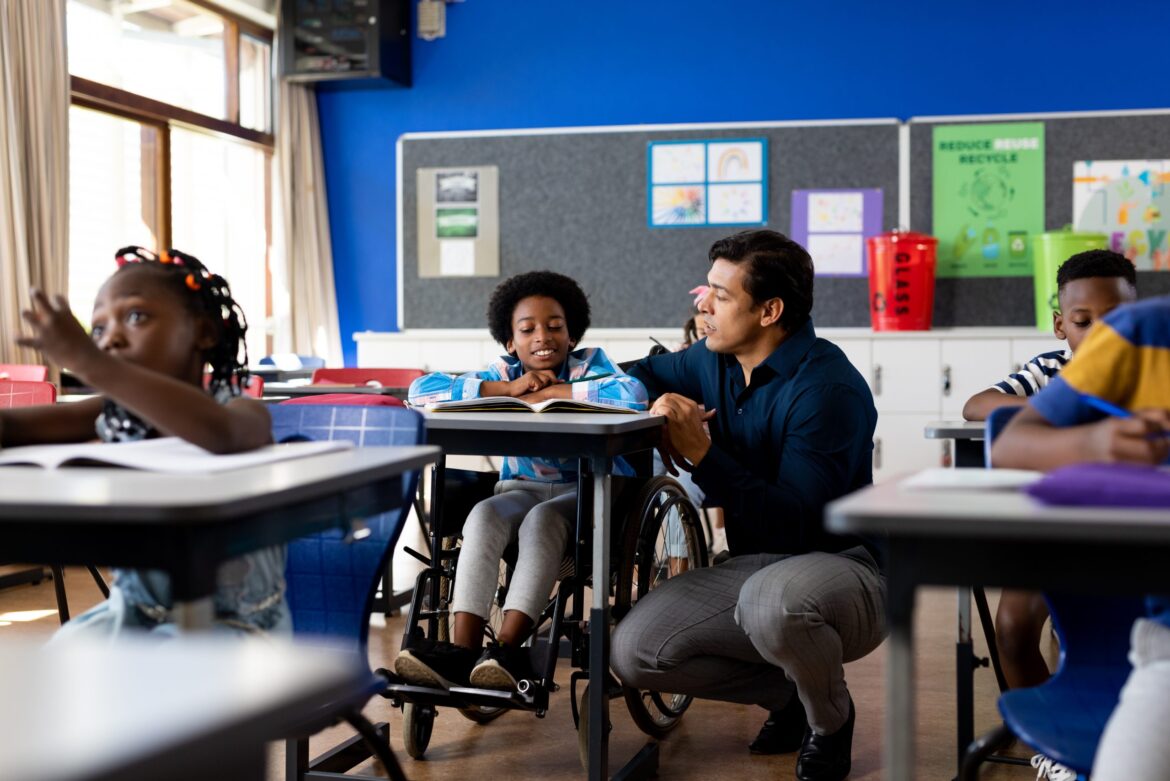
On Dec. 2, 1975, President Gerald Ford signed the country’s first federal special education law—the Individuals with Disabilities Education Act (IDEA). On IDEA’s 30th anniversary, in 2005, Special Education Day was established as an opportunity to honor the milestones we have achieved in special education and to remind us of the need to continue to strive to make education accessible and inclusive for all children.
Moving Beyond Equal Education
Since its passage, IDEA has ensured services, resources, and opportunities for millions of children with disabilities. Over the years, IDEA has created many changes beyond simply providing an equal education. Amendments to the act have led to an emphasis on accessibility to the general education curriculum, providing services for children from birth through age five, and accountability for the achievement of students with disabilities.
However, federal funding for special education has not kept up with actual costs. Today, over 7 million students in U.S. public schools qualify for educational services under IDEA. This number has grown by about 12 percent over the past decade, while federal funding has remained stagnant or even decreased when accounting for inflation.
Funding Falls Short
From its inception, IDEA authorized federal funding for 40 percent of average per-pupil spending nationwide to pay a portion of what it costs to provide special education services. But since the law was enacted, the closest the federal government has come to reaching the 40 percent commitment was 18 percent in 2004-2006, and current funding is at less than 13 percent.
As a member of the IDEA Full Funding Coalition, NAESP, along with over 60 other national organizations, proudly endorsed the IDEA Full Funding Act, which would ensure Congress fulfills their commitment to fully fund IDEA by requiring gradual increases in IDEA spending.
The U.S. House of Representatives has proposed flat-funding IDEA state grants in their FY24 education funding bill, while the Senate proposed a small 1.2 percent ($175 million) increase to the program. In addition, the House has proposed cutting funding from many education programs that benefit students with disabilities, including an 80 percent cut to Title I.
The Lead IDEA Center
So much more can be—and should be—done. The American Institutes for Research, in partnership with five other organizations including NAESP, is launching a federally funded center that helps leaders to establish and maintain inclusive learning environments and improve outcomes for students who receive services and support under IDEA.
The Lead IDEA Center will work with states to build aligned leadership learning systems, from preservice to in-service, which increase school and early intervention administrators’ understanding and application of inclusive leadership practices. Amid a nationwide educator shortage and pandemic-exacerbated learning inequities, particularly for students with disabilities, the Lead IDEA Center will collaborate and connect with state, district and early intervention leaders to:
- Create a comprehensive framework of IDEA professional leadership competencies to guide preparation and development of general education, special education, early childhood and early intervention leaders;
- Design innovative, practice-based Leadership Learning Systems within and across states using the IDEA leadership competencies as a foundation and model;
- Align certification processes, program approval standards, and professional learning systems as mechanisms to advance IDEA leadership competencies through supportive policies, programs and partnerships; and
- Facilitate use of materials and learning opportunities that foster collaboration between general and special education leaders to advance collegiality, collective roles and responsibilities, and partnership with students with disabilities and their families.
Observe Special Education Day
This Dec. 2, almost 50 years since the signing of IDEA, NAESP honors the tremendous efforts of educators to provide the highest quality education to all students. Here are three ways you can join us in observing Special Education Day:
- Give thanks. Thank your special educators for all the support they give to their students.
- Share your story. Join the conversation in person or online. Share stories of the importance of IDEA funding in your schools. #SpecialEducationDay #PrincipalsAdvocate
- Take action. Reach out to your representatives. Contact your elected officials and advocate for funding for special education programs.
Continuous underfunding of IDEA and additional cuts to K-12 programs that work in tandem are detrimental to the hard work of educators in addressing the unique needs of all students. As we honor the milestones that have been achieved in special education so far, I encourage you to reach out to your members of Congress and urge them to ensure children with disabilities are provided access to a quality public education by properly funding IDEA and federal K-12 programs.